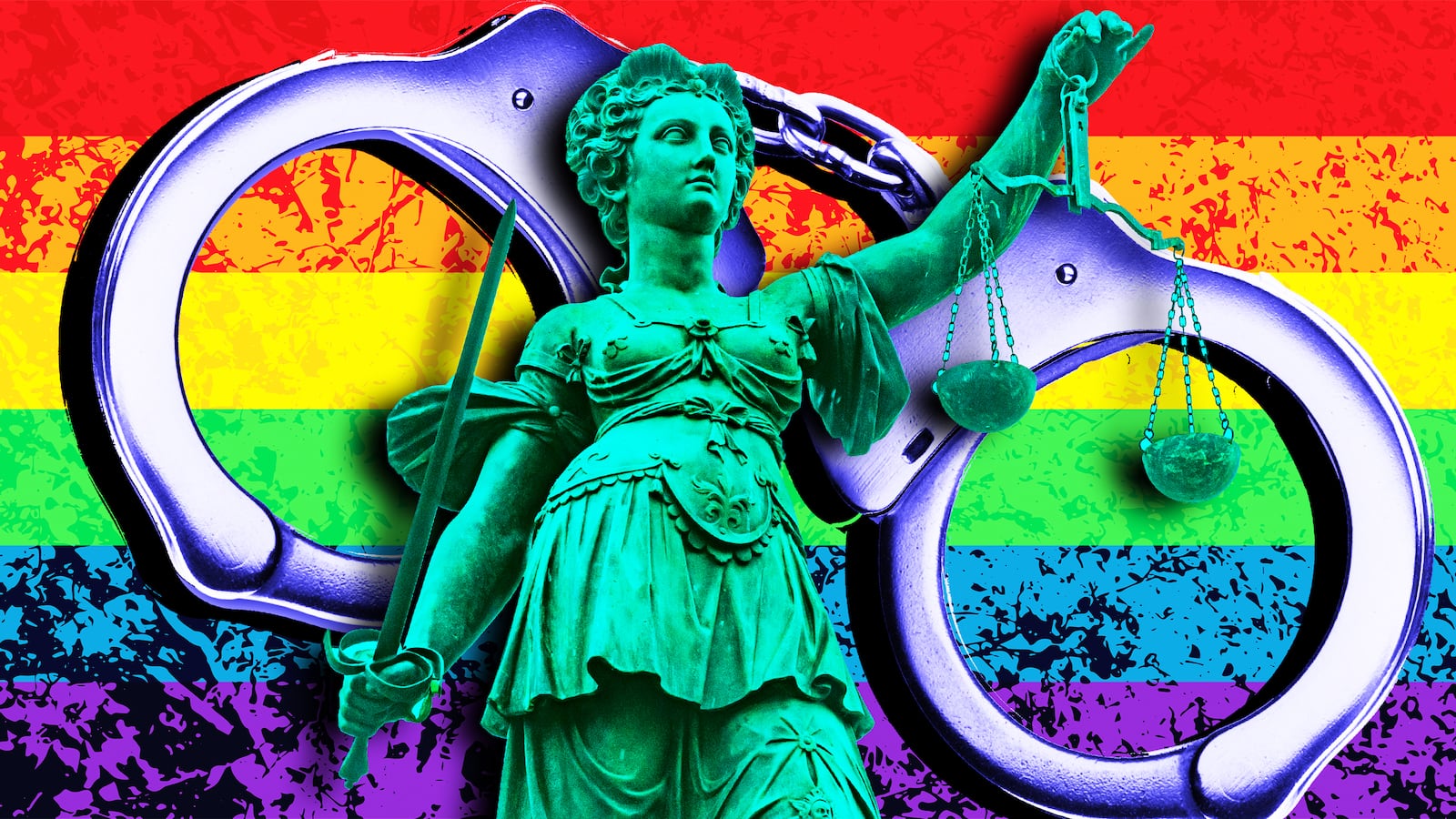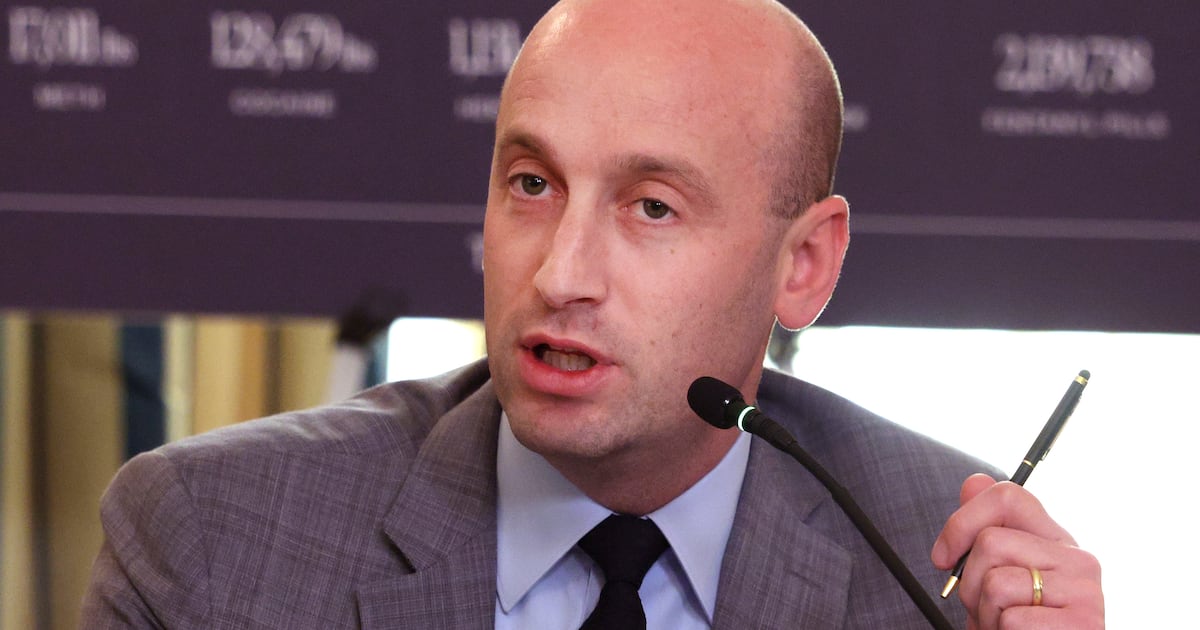In all but three states, it is legal for murderers to claim in court that they should be held less accountable for their actions because of the sexual orientation or gender identity of their victims.
That defense—known as the gay or trans panic defense—was banned in California in 2014, in Illinois in 2017, and in Rhode Island earlier this summer.
So, when will the rest of the country follow suit?
A new bill introduced by Rep. Joseph Kennedy III (D-MA) and Sen. Edward Markey (D-MA) would not outlaw gay and trans panic defenses nationwide.
As the Washington Blade reported last week, the Gay and Trans Panic Defense Prohibition Act would only apply to federal court. But Kennedy hopes the legislation can serve as a model for the rest of the country in the coming years.
“I can’t change state criminal law,” Kennedy told The Daily Beast. “But what we can do is, one, make sure that defense is no longer available in federal court and two, draft a law that can be a model for other state legislators around the country when they seek to make some of those changes.”
The gay or trans panic defense, as the National LGBT Bar Association website explains, essentially “blame[s]” an LGBT victim for a perpetrator’s “excessively violent reaction” to the victim’s identity. Often, the perpetrator claims that the victim made “unwanted sexual advances” as a way to “not only explain—but excuse” their crime.
One of the earliest notable examples of the defense being used was in 1954 when a gay Miami-based flight attendant named William T. Simpson was killed during a robbery scheme perpetrated by two men, Lewis Killen and Charles Lawrence.
As the Los Angeles Times’ Daily Mirror blog reported in a retrospective on the case, the scheme was simple: Lawrence would intentionally get picked up by a gay man—Simpson in this case—and then take him to “a remote spot” where Killen would help rob him.
This time, though, the crime went fatally awry after Lawrence shot Simpson. However, Killen and Lawrence got their first-degree murder charges downgraded to manslaughter convictions because, as South Florida Gay News noted, they claimed that Lawrence only shot Simpson after the latter made “unwanted sexual advances.”
But this defense isn’t confined to the history books; it continues to be used to this day, with some of the most disheartening examples involving transgender murder victims.
In 2016, as The New York Times reported, the man who fatally beat transgender woman Islan Nettles received a mere 12-year prison sentence for manslaughter after claiming that he didn’t know Nettles was transgender—and that the discovery of that fact launched him into a “blind fury.”
“It’s really something from the darkest of ages when you could just blame a victim for a crime,” D’Arcy Kemnitz, executive director of the National LGBT Bar Association, told The Daily Beast of the gay or trans panic defense, explaining the cruel logic behind it: “You’re LGBT, so you brought it on yourself.”
It is perhaps because this defense is so archaic-seeming that outlawing it has become one of the rare LGBT causes to enjoy bipartisan support. Republicans across three states have now voted to ban the gay and trans panic defense from the courtroom.
When the California state legislature passed the first gay and trans panic defense ban in 2014, only nine state senators and 15 assemblymen cast “no” votes on the bill.
In May 2017, the Illinois Senate voted unanimously to ban gay and trans panic defenses, as NPR Illinois reported. And this May, The Rhode Island House of Representatives voted 68-2 in favor of their own ban, as the Providence Journal reported.
Passing a ban on the federal stage, however, could prove more challenging. American Unity Fund, a conservative LGBT advocacy organization, supports the Gay and Trans Panic Defense Prohibition Act—but garnering GOP support on the Hill will take effort.
“I haven’t encountered pushback so far but then again, unfortunately, we haven’t had a rush of Republican colleagues racing to sign onto the bill, either,” Kennedy told The Daily Beast, noting that he and Markey will be “working to try to make the case” across the aisle.
Simultaneously, LGBT advocates are hoping to build momentum for more state-level bans of the gay or trans panic defense. Kemnitz told The Daily Beast that bills banning the defense have now been proposed in “several states,” including New York, New Jersey, and Washington State.
“We’re feeling very optimistic that we’re on the upswing toward passing these things,” she told The Daily Beast.
If that advocacy work proves successful, we could start to see gay or trans panic defense bans getting passed at the same pace as bans on conversion therapy, or the practice of trying to change a minor’s sexual orientation or gender identity.
The rate of state-level conversion therapy bans has accelerated over the past two years, with 13 states now outlawing the practice. And with the exception of Gov. Paul LePage, who vetoed a conversion therapy ban in Maine earlier this month, every Republican governor to have received a conversion therapy bill on his or her desk has signed it.
Anthony Michael Kreis, a law professor at the Chicago-Kent College of Law, who helped write the Illinois law banning the gay or trans panic defense, told The Daily Beast that bills like his are “all pretty much boilerplate to some extent.” Effectively, gay or trans panic defense bans make a small insertion into existing statutory code to make it clear that a victim’s LGBT identity can’t be used as a mitigating factor in a criminal defense.
“We’re just kind of placing this narrow exception to say that a person’s sexual orientation or gender identity can’t be a valid excuse that a court can recognize in order to get a “get out of jail free” card, so to speak,” he told The Daily Beast.
California’s 2014 ban, for example, says that “for purposes of determining sudden quarrel or heat of passion”—both arguments that can be made to reduce murder charges to manslaughter charges—a defendant cannot cite “the discovery of, knowledge about, or potential disclosure of the victim’s actual or perceived gender, gender identity, gender expression, or sexual orientation,” nor can the defendant blame “an unwanted nonforcible romantic or sexual advance” from the victim.
But even though solid legislative models have been in place for four years, LGBT advocates say it takes time to build the same kind of momentum that conversion therapy bans have been enjoying in recent month: In 2013, only two states banned conversion therapy; in 2017 and the first half of 2018, eight did the same.
“In any type of civil rights social movement-based legislation, you always have a period of trickling, and then you have a period where the floodgates open,” Kreis told The Daily Beast. “That was true of conversion therapy bans and that was true of marriage equality laws: You get a couple of states on board, then you get a critical mass in place, and then you see states come on board in much more rapid succession.”
Part of the problem, according to Kennedy, is simply making legislators aware that gay or trans panic defenses are still legal, and are still being used in court.
“Before diving into the issue, I had no idea that this even was something that somebody could assert,” he told The Daily Beast. “So I would imagine that in many circumstances, most lawmakers, be they federal or state, aren’t even aware that such a protection exists—and the idea that it does is kind of shocking.”
Even though national media outlets often refer to the gay or trans panic defense as “rare” or “rarely used,” Kemnitz told The Daily Beast, “we don’t know how rare it is.”
“We know that the marquee or headline-making cases where this is used—those are rare,” she said, but she noted that when the National LGBT Bar Association worked with the American Bar Association on a resolution against the gay or trans panic defense in 2013 [PDF], they could find no solid data on its overall use nationwide.
But no matter how frequently or infrequently the defense gets invoked, Kemnitz says that it sends the same insidious message—one that deserves to be kept out of court.
“This leads people to believe that LGBT victims are simply worth less than other types of people,” she said. “It makes our lives less worthy than other lives when somebody uses this type of defense.”






